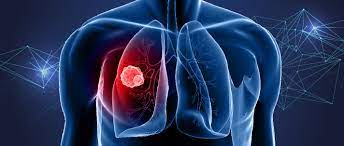In a recent breakthrough, researchers from the University of Queensland (UQ) have uncovered the underlying cause of lingering cardiovascular symptoms in individuals suffering from long COVID. Characterized by prolonged symptoms such as chest pain and heart palpitations, long COVID remains a medical enigma for millions globally. This study marks a significant step forward in understanding the condition’s effects on heart health, particularly concerning inflammation-induced damage to heart cells.
Cardiovascular Damage Linked to Inflammation
The study, spearheaded by Professor Kirsty Short, found elevated levels of cytokines—proteins that regulate inflammation—in individuals who had recovered from COVID-19 up to 18 months prior. These cytokines were detected in blood samples and were shown to impact cardiomyocytes, the cells responsible for the heart’s pumping function. “Damaging these particular heart cells can lead to serious cardiovascular symptoms,” Professor Short explained, underscoring the significance of these findings.
Before this study, the link between chronic inflammation and long-term cardiovascular symptoms was largely speculative, particularly in cases where symptoms persisted over a year post-infection. Now, this research offers tangible evidence of how prolonged inflammation from COVID-19 affects heart cell functionality.
Innovative Diagnostic Approach Using Nanotechnology
To investigate this phenomenon, UQ researchers employed a novel “immuno-storm chip” nanotechnology, developed at the Australian Institute for Bioengineering and Nanotechnology (AIBN). This technology allowed them to detect trace levels of cytokines associated with heart damage. The study analyzed blood samples from 50 participants, including individuals with long COVID, those who had recovered, and people who had never contracted the virus.
The innovative approach not only confirmed the presence of inflammation but also identified specific markers linked to cardiac tissue damage. While the findings are promising, Professor Short cautioned that further research is necessary. “These results require validation in additional patient cohorts, especially those infected with newer strains of SARS-CoV-2,” she stated, emphasizing the need for comprehensive studies.
A Collaborative Effort
The research involved collaboration across multiple UQ departments, including the School of Chemistry and Molecular Biosciences, Institute for Molecular Bioscience, and Mater Research Institute-UQ. The team also included experts from the South Australian Health and Medical Research Institute, contributing to a well-rounded scientific inquiry into long COVID’s cardiovascular effects.
Implications for Heart Health and Future Research
This study highlights the urgent need to understand COVID-19’s long-term effects, especially for the estimated 65 million people worldwide grappling with post-acute sequelae of COVID-19 (PASC). By identifying the role of cytokines in heart cell dysfunction, the research opens pathways for targeted treatments aimed at reducing inflammation to protect heart health in long COVID patients.
“Long COVID is a complex condition, and our findings suggest a need for expanded research across larger and more diverse populations,” noted Professor Short. Future studies could explore the potential of anti-inflammatory therapies to alleviate the cardiovascular symptoms prevalent among long COVID patients.
As the scientific community delves deeper into chronic inflammation’s role in long COVID, there is hope for developing better diagnostic tools and treatments to enhance the quality of life for those affected by this enduring condition.
The study has been published in Nature Microbiology, marking a significant advancement in understanding long COVID’s impact on heart health and paving the way for future research and therapeutic developments.












